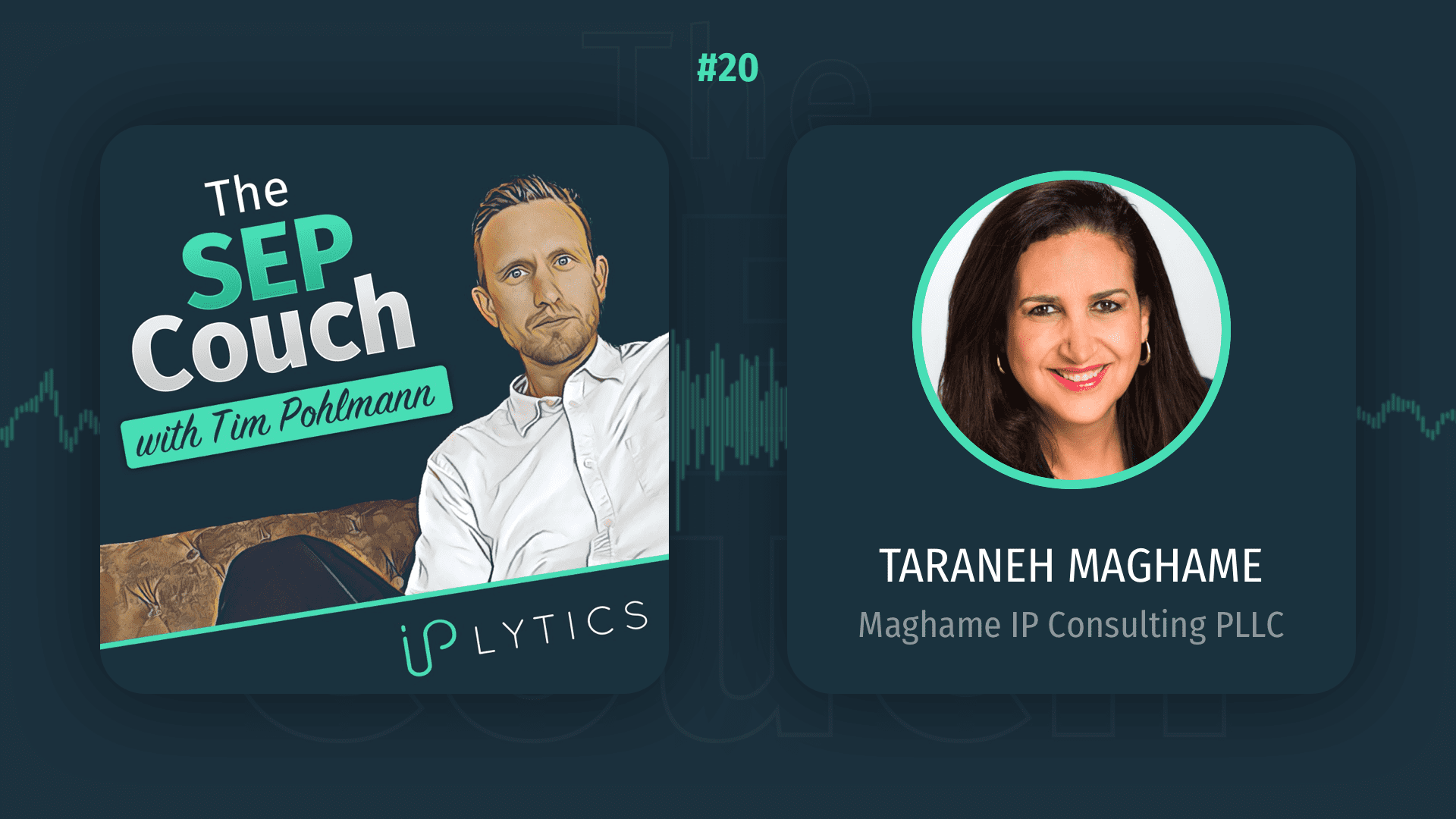SEP Licensing Realities – Episode 20

Watch on YouTube
Guest:
- Taraneh Maghame, Maghame IP Consulting PLLC
Ms. Maghame has served as senior IP counsel at Hewlett-Packard and Compaq Computer Corporation and has been a member of distinguished IP law firms Brobeck, Phleger & Harrison and Perkins Coie, specializing in IP litigation, licensing and counselling. She is a graduate of Georgetown University Law Centre and is admitted to practice in California and Washington State, as well as before the USPTO. In 2018, Ms. Maghame was appointed to the European Commission’s Expert Group on Licensing and Valuation of Standard Essential Patents. She has been included in the 1AM 300 World’s Leading IP Strategists for multiple years and is a frequent speaker on patent licensing and policy matters. Ms. Maghame was vice president of wireless programs and corporate development at Via Licensing Corporation, where she developed and managed strategic multi-party licensing programs in wireless and cellular technologies. Before joining Via in 2017, Ms. Maghame served as senior counsel in Apple’s IP and licensing group, focusing on patent licensing strategy and standards, and represented Apple in global standards-related organizations. Before Apple, she was acting general counsel and vice president for M&A, patent policy and government relations at Tessera Technologies. In this high-profile policy role, she helped to found the Innovation Alliance, an organization representing patent holders’ interests before Congress. She has testified before the Senate Committee on the Judiciary and the Federal Trade Commission regarding patent matters. Today Taraneh runs her own business: Maghame IP Consulting PLLC, a firm that provides strategic counseling and expert services focused on IP issues related to the development, use and licensing of standards.
In the podcast Taraneh elaborates on her experience working with SEPs in over two decades. While 20 years ago a few big telecom players owned SEPs and cross licensed these, today the SEP licensing has dramatically changed. This is because of the wide use of standardized technologies such as LTE or 5G and that there is much more at stake now. While the past years show that many SEP licensing deals were successfully closed at the same time patent litigation was dominated by SEP/FRAND disputes. Worldwide disputes may work for large smartphone manufacturers and huge SEP owners, Taraneh believes however that when SEPs are licensed for IoT use cases licensing must be much more efficient. The royalty rates will likely be much lower. Long disputes are not worth the investment for both sides of the table. Even more, it maybe be worth overthinking not only to license on OEM level because in the end it may create more revenue to license a large number of components or modules for a lower rate than the other way around. Also, Taraneh believes that the formation of Licensing Negotiation Groups (LNGs) should at least be considered, given there are no anti-trust issues.
Taraneh helps companies in new industry verticals that use connectivity standards or plan to use connectivity standards in their products. Taraneh believes that regulators should allow the markets to self-regulate but at the same time believes that policy makers should provide more guidance for solutions and especially increase transparency to decrease legal uncertainty in industries where SEP licensing is yet to be established. This is for the good of both the implementers and the SEP holders. From her days at Via Licensing she experienced great collaborations and constructive solutions when patent holders and implementers are open and transparent working together.
This year the Department of Justice, USPTO and NIST withdraw the 2019 SEP policy statement (June 2022). Taraneh is excited to see if we will see anything from the US regulators. While there are rumors for a draft bill that proposes a federal SEP royalty court with global impact, Taraneh believes that because this bill is currently unsponsored and was proposed by the industry it will take some time until anything will be put forward and during that time such a bill will change to considers all the views from the industry.
